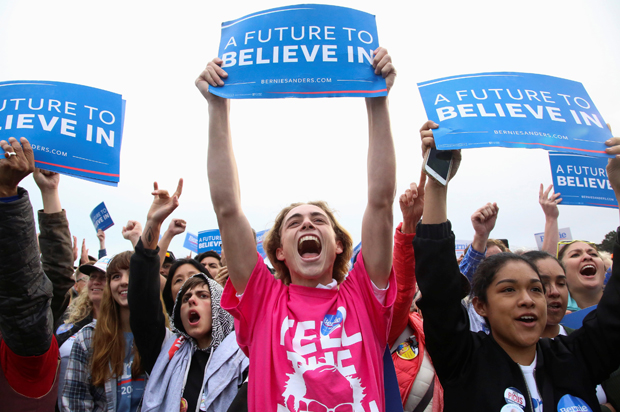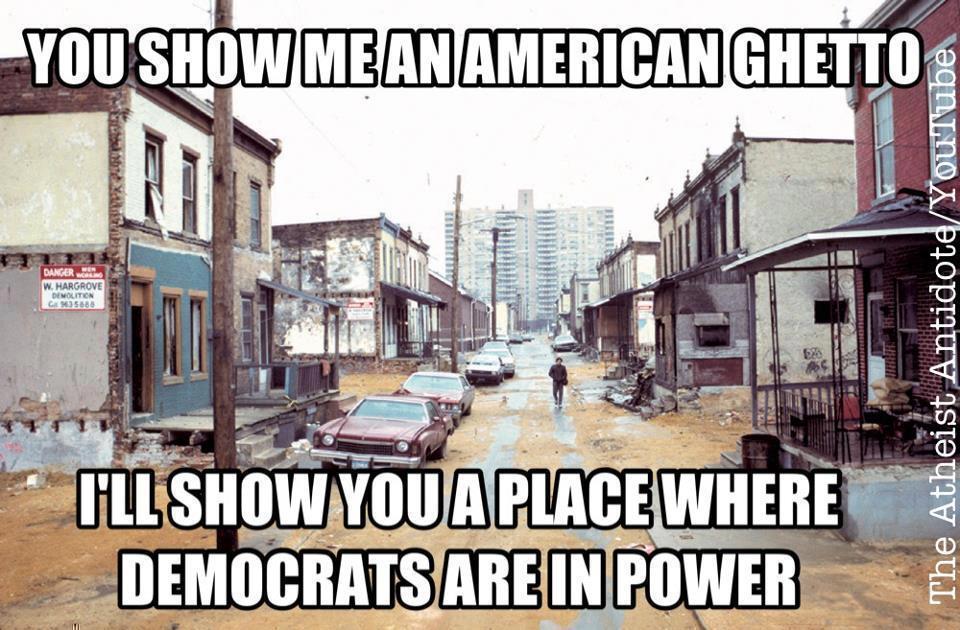What critics get wrong about Bernie Sanders supporters
Sanders' policies aren't about giving stuff away for free, they're about keeping up with an evolving world economy
It is no secret that Sen. Bernie Sanders has dominated with millennial voters over the past year, winning as much as 80 percent of the under-30 vote in some states against his Democratic primary opponent, Hillary Clinton. All told, the senator has received more votes from under-30 Americans than the two presumptive nominees
combined (by nearly 30 percent), according to a
recent report from the Center for Information and Research on Civic Learning and Engagement at Tufts University. While an estimated 766,425 under-30 Americans cast their ballots for Clinton, the presumptive Democratic nominee, over two million backed Sanders (while presumptive Republican nominee Donald Trump received roughly 800,000 votes from under-30s, slightly more than Clinton).
Commentators have drawn different conclusions from Sanders’ remarkable popularity among millennials, but the two most common takeaways are either that the democratic socialist’s politics are the future of the Democratic party (and thus American politics), or that the entire movement is youthful idealism that will fizzle out once the election comes to an end (and thus Clinton neoliberalism will remain the dominant ideology).
It has been hard to miss the condescending attitude towards millennial Sanders supporters, who, according to many pundits, are either lazy slackers who want “free stuff,” or are hopelessly naive and don’t understand how the real world works — e.g. that money makes the world go round and that taking a “purist” stand against special interests and corruption (in both parties) will only help the GOP fascist Donald Trump. In other words, young people haven’t come to terms with the reality of “lesser-evilism.”
Even pundits who are sympathetic to Sanders have not been impervious to ageism against the youngest generation. Consider HBO host Bill Maher, who was an early supporter of Sanders. Two weeks ago the comedian went on an anti-millennial rant during his New Rules segment, and while he conceded that Sanders had won the future, he also coined his very own neologism — “Santa-ism” — to mock young Americans who support policies like universal healthcare and free public college tuition (policies that can already be found in other industrialized countries).
“Let’s not romanticize socialism the way conservatives romanticize capitalism,” said Maher. “These are economic systems, not your first kiss…[Millennials have] gotten too used to getting shit for free” (Maher then goes on to list two invaluable commodities that have been largely demonetized by the internet: music and pornography).
It seems that even sympathetic voices have bought into the free stuff straw man commonly touted in right-wing circles; an argument that is equivalent to the conservative “poor people are lazy” talking point. Maher complains that young people are still living at their parents and are still on their parents healthcare plans — as if millennials
want to be completely dependent on their parents and are too entitled to go out and do something with their lives.
In reality, millennials are the
most educated generation and the most indebted generation (surprise: the class of 2016
recently surpassed the class of 2015 as the most indebted ever — though this record will undoubtedly be short-lived). They also face a bleak job market, while average wages have
steadily declined for young graduates since 2000. When Maher went to Cornell in the late seventies, public college tuition was on average
less than a quarter of what it is today in inflation-adjusted dollars, and economic inequality was at an all-time low (today, it is at historic highs). So while students continue to see tuition skyrocket, they also see wages stagnating and an increasing likelihood that middle-class jobs will be automated in the near future.
For young people who choose
not to go to college and avoid taking on enormous levels of debt, there is an increasingly widening pay gap. “In 2013 median earnings for young adults with a bachelor’s degree were $48,500, compared with $23,900 for those without a high school credential, $30,000 for those with a high school credential, and $37,500 for those with an associate’s degree,”
according to the National Center for Educational Statistics. If one forgoes a college education in America today, the prospects of making it into the middle class decrease markedly (other countries,
like Germany, have excellent vocational school systems that America could learn a lot from).
Even more troubling is the fact that technology may soon begin eliminating more jobs than it creates (according to some researchers,
we have already reached a tipping point). Throughout the history of capitalism, “creative destruction,” described by economist Joseph Schumpter as a “process of industrial mutation that incessantly revolutionizes the economic structure from within, incessantly destroying the old one, incessantly creating a new one,” has always produced a net positive for society. While old jobs became obsolete, technology created new and better ones and the whole of society became more wealthy and better-off in the process.
But with advancements in computer technology and robotics this may no longer be the case. According to a
2013 Oxford University study, about 47 percent of jobs in America are at risk for computerization in the next two decades, and new technology simply isn’t keeping up with job creation. Without stable and decent paying jobs, those who do not own capital (i.e. the majority of American wage-earners) face an arduous future without policies that promote economic democratization or provide a basic standard of living (i.e. a universal basic income).
This is obviously bad news for the youngest generation, and also a good reason for millennials to support social democracy. True, some young voters may support Sanders simply for his integrity or authenticity, which are both rare qualities in modern politicians. But is it unreasonable to conclude that young voters primarily back the democratic socialist because neoliberalism isn’t delivering and Sanders is offering an alternative? Millenials grew up in a post-Communist neoliberal world, and income and wealth inequality have steadily accelerated throughout their lives while the global economy has been more volatile than any other period since the Great Depression.
If America doesn’t embrace social democratic policies, working and young people will continue to see their economic circumstances decline, while the top five percent — capitalists and those in the professional class (although
even white-collar professionals are not safe from creative destruction) — will see their already obscene wealth continue to soar, particularly those in the top 0.1 percent.
What critics like Bill Maher (and virtually every pundit on Fox News) call “free stuff” are simply policies that would address the major economic challenges of our time. The rugged individualism that conservatives love to espouse and romanticize is not applicable to the 21st century economy, where massive multi-national corporations control entire sectors and the majority of people work for a wage or salary. Social democracy addresses the shortfalls and excesses of modern capitalism.
Policies like tuition-free public college, universal healthcare, and a universal basic income (which is, unfortunately, not included in Sanders’ platform) are not about giving everything away for free, but keeping up with a rapidly evolving economy and guaranteeing a basic standard of living in the world’s richest country. It seems millennials who have inherited the disastrous neoliberal economy and the corrupt corporate state from their parents and grandparents have very good reason to support a democratic socialist.
http://media.salon.com/2016/06/bernie_sanders_supporters4.jpg








 My conscious would get to me. I've thought about it though. Especially when hubby voted a second time for George W. Bush.
My conscious would get to me. I've thought about it though. Especially when hubby voted a second time for George W. Bush.
